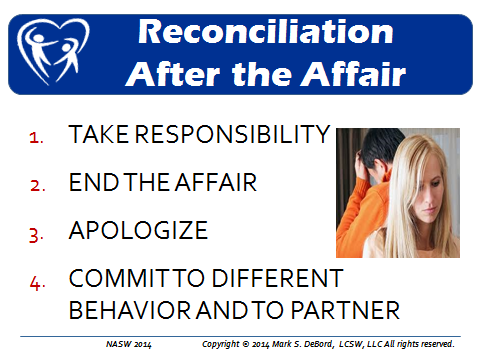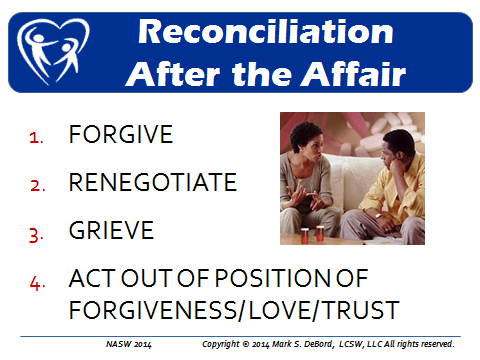Reconciliation involves forgiveness which is the letting go of the perceived right to punish or apply a sanction for a perceived wrong suffered. An easy example is if I owe you $5 and you say, “Don’t worry about it, it’s fine!” I no longer owe you $5. You have forgiven the debt. In relationships, violations are not as concrete, but the principle still applies. Forgiveness is a gift that you give yourself and the other person(s). You can forgive all by yourself and without an apology being offered. Here is where the misunderstanding comes. Often people think that they have not forgiven, if they have not reconciled; but the two processes are very different.
Unlike forgiveness, reconciliation involves both parties. In order to restore a right relationship, the violating party has to apologize and commit to different behavior in the future. Then it is possible for the wronged party to agree to renegotiate the relationship with a forgiving attitude. Without the renegotiation the reconciliation is superficial and likely will not last as the two parties do not have an agreed upon standard of behavior which makes them more vulnerable to further conflict and disappointment.
Sometimes, there is a violation or series of violations that rise to the level of being a “deal breaker” in terms of reconciliation. Take, for example, an employee who continually fails to follow policy. That employee may apologize over and again, but at some point that employee will lose his opportunity to work in that business – forgiveness may occur, but reconciliation does not. This can actually be a “loving” act, because otherwise the message is sent that it is okay to continually ignore policy. By applying the sanction and deciding not to reconcile, you may be doing that person a favor by giving them the opportunity to learn a better pattern of work behavior. Sometimes, once the two parties begin their negotiations, one may determine that they are unable to come to terms that are satisfactory.
So, just because one forgives, reconciliation does not have to happen.


 RSS Feed
RSS Feed
